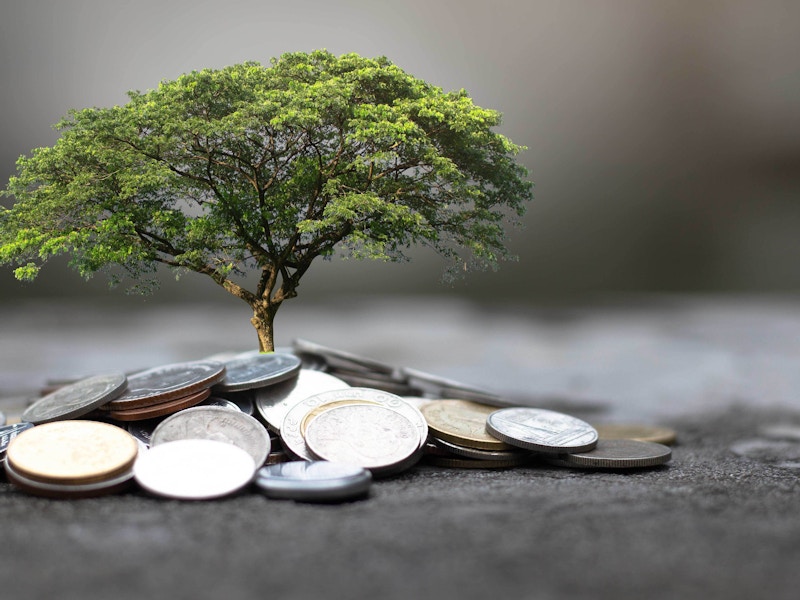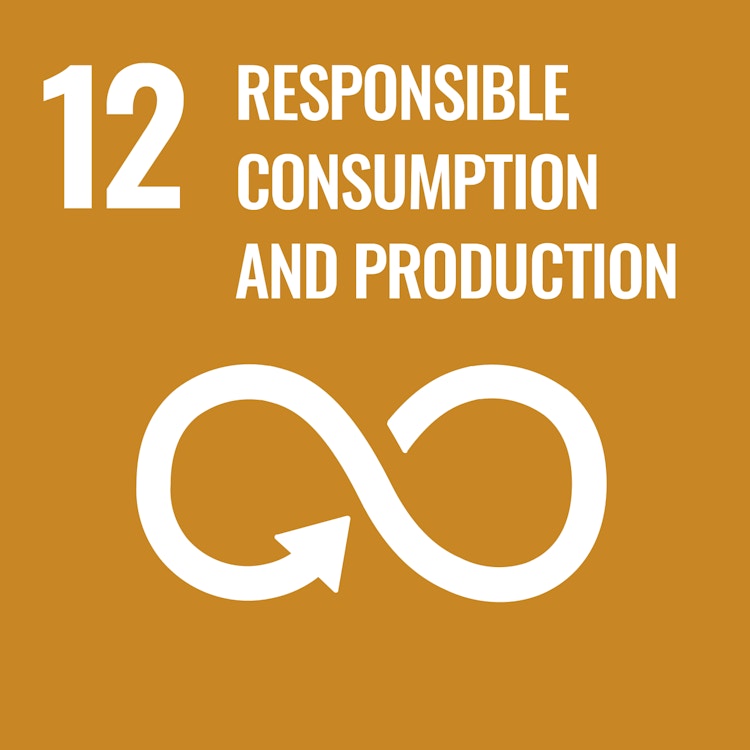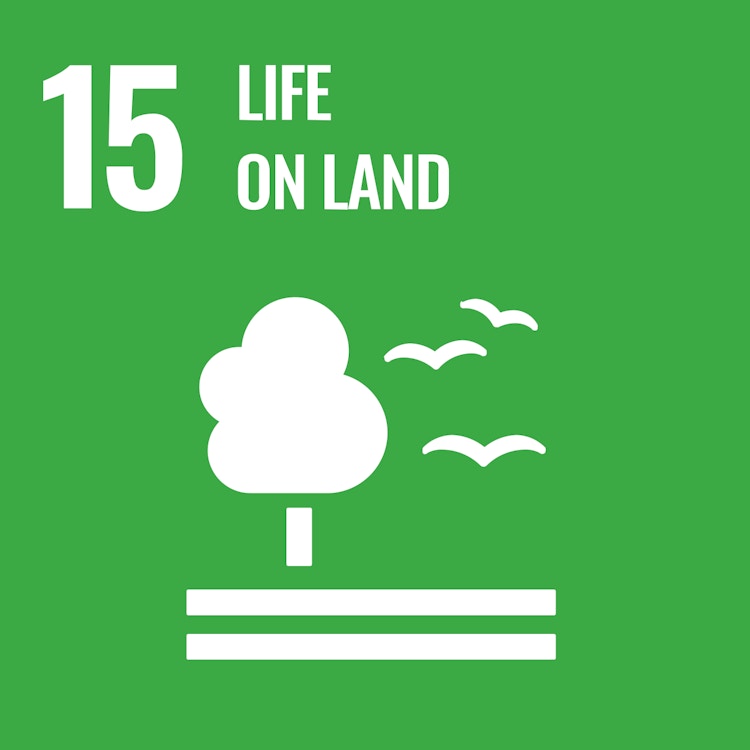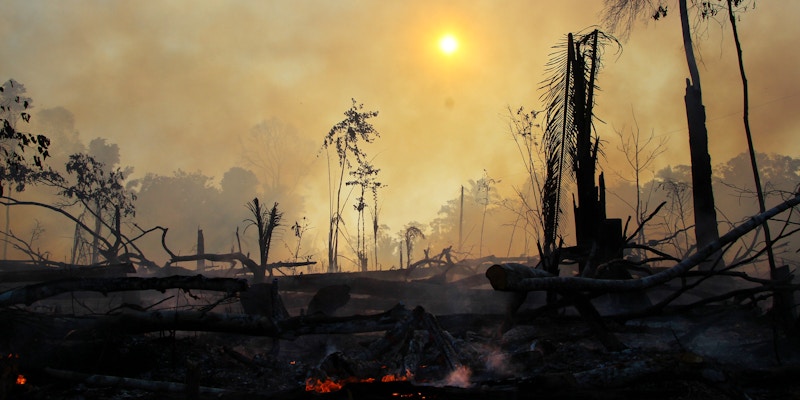
How we work to make businesses sustainable
Towards 2030, we are stepping up our efforts to prevent investors and companies from destroying the rainforests. We hold commercial actors accountable and present them with tailor-made solutions to stop deforestation and human rights violations.
Photo: Shutterstock
By Rainforest Foundation Norway.
Commercial exploitation of the rich rainforest resources is the main driver of deforestation. Unsustainable business practices linked to commodities like leather, soy, and minerals and their supply chains pose the greatest risk to rainforests.
Meanwhile, financial institutions play a key role as shareholders and financiers of companies in forest-risk value chains. As such, they are uniquely positioned to influence these companies to adopt more responsible policies and practices.
Therefore, Rainforest Foundation Norway works directly with key companies and supply chains, as well as investors with financial links to these companies, to halt market-driven deforestation and promote the protection of rainforests and forest-dependent communities.
Commercial drivers of deforestation:
- Industrial-scale agricultural production: Palm oil, soy, meat and pulp for international markets causes at least half of the deforestation in the world.
- Logging, mineral extraction and production of oil, gas and hydropower are additional major threats.
- Roads and infrastructure open up new forest areas for destruction. This indirect threat has received little attention but has become a threat on the same scale as direct deforestation.

LOGGING: Logging is one of the main drivers of deforestation and forest degradation. Photo: RFN
Aligned with UN goals and Paris agreement
In our work with international investors, banks, and companies, we align our efforts with UN Sustainable Development Goal (SDG) 15 Life on Land and SDG 12 Responsible Consumption and Production, the Global Biodiversity Framework Target 14, 15, 19, as well as the objectives of the of Paris Agreement.



Against this backdrop, Rainforest Foundation Norway draws on its large network of partners organizations in rainforest countries, as well as international NGOs, academics, and other relevant stakeholders, to provide relevant and actionable input to companies and financial institutions.

of the world’s CO2 emissions come from deforestation, according to IPCC

DEFORESTATION: Forest destroyed for commercial agriculture in the Brazilian Amazon. Photo: RFN
Advocacy, advising and providing expertise
We advocate for best practices in environmental, social and governance (ESG) standards, alert financial institutions to material risks to which they may be exposed, and organise capacity development and knowledge exchange activities.
Our activities include advising and organizing collective engagement initiatives, supporting bilateral company engagements, providing expertise through webinars, research, and reports; for financial institutions that are eager to improve their sustainability track record and manage their deforestation risks, while maintaining strong financial returns.
Examples of our work with key supply chains:

Hide on the Highway
According to our "Hide on the Highway" report (2024), many of the leather products sourced by 15 European automotive companies come from deforestation-risk areas.
Rainforest Foundation Norway actively engages these companies, advocating for traceable and deforestation-free supply chains.
By participating in multistakeholder meetings and pushing for transparency, we help these businesses shift their sourcing policies towards more sustainable practices, reducing the environmental impact of cattle ranching.

The State of the Soy Industry
In the soy industry, Rainforest Foundation Norway works with 14 key soy supply chain actors in Europe to promote sustainable sourcing practices.
Our report, "The State of the Soy Industry", outlines how soy cultivation, particularly in South America, is a leading driver of deforestation.
Rainforest Foundation Norway engages with companies and policymakers to ensure they adopt strict deforestation-free sourcing standards, encouraging traceability and accountability throughout their supply chains. By fostering direct dialogue and participation in multistakeholder platforms, we support these actors in making more responsible decisions that align with both environmental and human rights considerations.

Mineral Supply Chains
Norwegian Rainforest Foundation’s work in the mineral sector addresses the environmental and social risks associated with mineral extraction.
In our "Short Circuits" report, we highlight the significant deforestation risks tied to minerals like nickel, essential to industries such as automotive and electronics.
Through our corporate engagement initiatives, we collaborate with global companies to ensure their mineral sourcing is free from deforestation and human rights violations. By advocating for responsible sourcing practices and working closely with investors, Rainforest Foundation Norway drives meaningful change within mineral supply chains, ensuring a more sustainable future for rainforests and forest-dependent communities.
Examples of our work with investors:

Tools for asset managers
In 2020, Rainforest Foundation Norway has partnered with Norwegian investors Storebrand and KLP to
publish a report featuring a mapping of tools for deforestation risk
management.
The mapping includes an overview of the evolution of private
sector initiatives on deforestation, examining how corporate disclosure
and policies have developed in line with regulatory changes.
In
addition, it provides an analysis of the various investor statements on
the expectations of companies in sectors that affect rainforests
worldwide.

Promoting best practices and risk awareness
In partnership with investor networks such as the Emerging Markets
Investors Alliance and the UN Principles for Responsible Investment, Rainforest Foundation Norway has organized a series of webinars for asset managers, focusing on global best practices, policy and regulatory changes in key markets, and specific companies and value chains with high exposure to environmental, social, and governance risks.
The webinars have featured prominent speakers from the Global South, policy experts, government officials, and large global investors as well as transnational companies with interests in rainforest countries.

Information and analysis on key emerging markets
Through policy analyses and a curated selection of media articles and reports sent to investors in our network, we bring information on market players, political and regulatory developments at global and national levels with a focus on the countries where we work. If you would like to subscribe to our newsletter, please send an email to sustainablefinance@rainforest.no
For more information, contact:

Ingrid Tungen
Head of Deforestation-free Markets
(+47) 414 73 806
ingrid.t@rainforest.no






